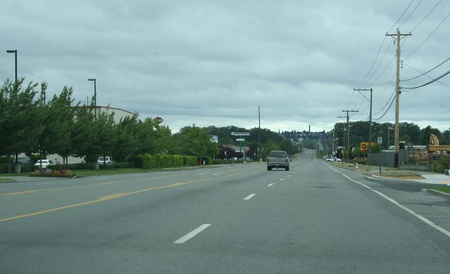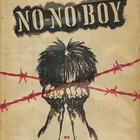Chapter 6, halfway through the story, is an impressive chapter in which author John Okada paints a beautiful yet sad picture of a kind-hearted Japanese-American family.
Kenji, who lost a leg in the war and whose injury has worsened, leaves Seattle for a veterans hospital in Portland again. Kenji, who has a premonition that he will never come back, unlike before, says goodbye to his family.
Issei's Father's Regrets
My mother passed away quite some time ago, and my father has been working as a craftsman for a long time, raising three sons and three daughters on his own. My father, a first-generation first-generation Japanese who came to America to make his name, worked hard, and as a result, his children are living well in American society as second-generation Japanese.
The children respect their father and the father is proud of his children. Everyone in this warm and fuzzy family is worried about Kenji. Kenji also fully understands his family's concern for him because he was hurt.
In particular, he was painfully aware that his father loved and worried about him. Considering that many young Japanese Americans had gone to war and been injured in order to prove that they were Americans because they were "Japanese," there may have been some second-generation Japanese who cursed and resented the fact that they were Japanese.
However, Kenji doesn't think that way at all. Kenji went to war prepared to die fighting for America. The author describes his feelings as "to prove that he really deserved the rights of an American that were supposed to be his."
However, Kenji's father felt sorry for his son. He thought that his son had suffered because he was Japanese. His father told Kenji:
"I came to America to get rich, go back to my village in Japan, and become somebody. I was greedy, ambitious, and arrogant. I was not a good person, and I was not smart. I was just young and stupid. And you paid the price."
In response, Kenji laments:
"What are you talking about? ... That's not true at all."
My father also asked himself and Kenji if he had told Kenji not to join the army when Kenji said he wanted to join the army, would he have been able to avoid what happened to him? Kenji denied it. Kenji was so kind that he even said that if he hadn't gone to war, he wouldn't have spoken to my father like a friend.
Being separated from family and feeling lonely
Dinner begins around Kenji, and while everyone is concerned about him, his younger brother Tom is so worried about his brother that he speaks harsh words about the doctors treating Kenji. Kenji reassures him that he's okay.
After dinner, the sisters, who have both married, come home with their families, and the family gathers together to watch a baseball game, including the small children. Kenji then sneaks out the back door and hears everyone chatting away happily. The description of this scene conveys to the reader Kenji's loneliness and solitude.
Only his father knew that Kenji's condition was not good. When Kenji was alone with his father, Kenji honestly told his father, "I'm scared."
After saying goodbye to his father, Kenji left the house that night, ignoring the family gathering, and got into his car to head to Portland. The author writes about the farewell scene as follows:
"Desperately wanting to return and spend some more time with his father, Kenji's hand groped for the door handle. At that moment, his father gave a slow wave of goodbye. Kenji quickly backed up the car and left the house."
Having a child changes the world
Chapter 6 depicts the feelings of Kenji's father, showing how the first generation of immigrants change over time.
"...My father had long ago forgotten when he had given up the idea of returning to Japan. He only remembered that it was at this time that the country he had never had any intention of loving suddenly began to become a part of him. Because it was a part of his children, because he saw and felt it in their stories, their joys, their sorrows, their hopes, and he was a part of them. As the foolish dreams he had brought with him to America faded, the richness of life he found in this foreign land destroyed his longing for the past."
The film also depicts the huge cultural gap between the first generation and their children (second generation), who are born in America, grow up immersed in American culture, and become Americans.
Returning to the storyline, Kenji leaves home and before going to pick up Ichiro, who is accompanying him to Portland, he stops by his favorite bar, Club Oriental. It is the same bar that he and Ichiro visited the night before and where they had a fight afterwards, and is an iconic bar in the old Japantown that also appears at the end of the novel.
Finding a moment of comfort here, he visits Ichiro's house in the middle of the night, where he witnesses Ichiro's mother behaving strangely, apparently having gone mad after reading the letter from Japan.
Ichiro knew this, but he and Kenji went on a midnight drive to Portland. On the way, they were caught by a white police car for speeding, and the policeman impliedly asked them to give him a bribe in exchange for letting them go. Kenji refused and got the ticket. It didn't matter to Kenji, who felt that if he was hospitalized, it would be the end.
Ichiro is shocked to hear Kenji's prediction and determination. In the morning, they arrive at the hospital in Portland. Kenji is admitted, and Ichiro goes out into the city of Portland.
(Translation by the author)
© 2016 Ryusuke Kawai







